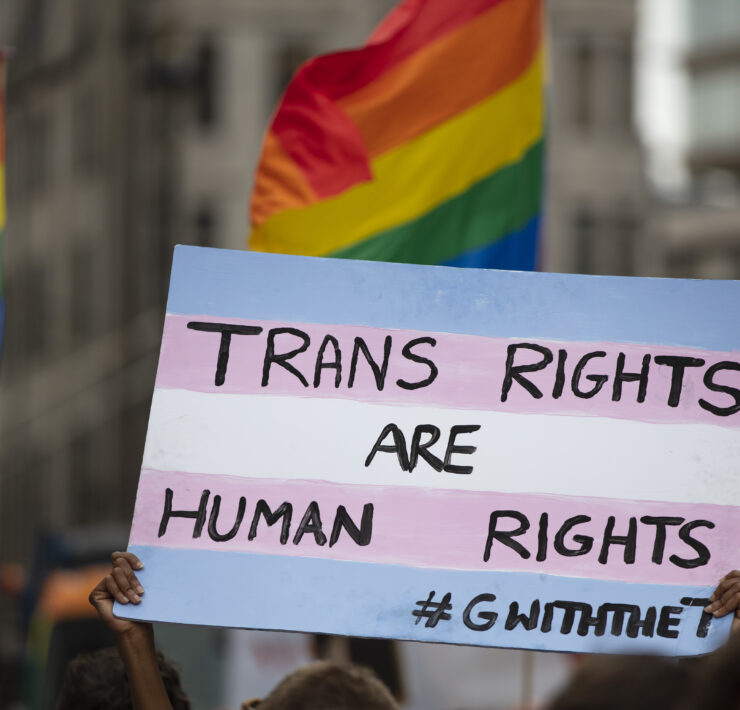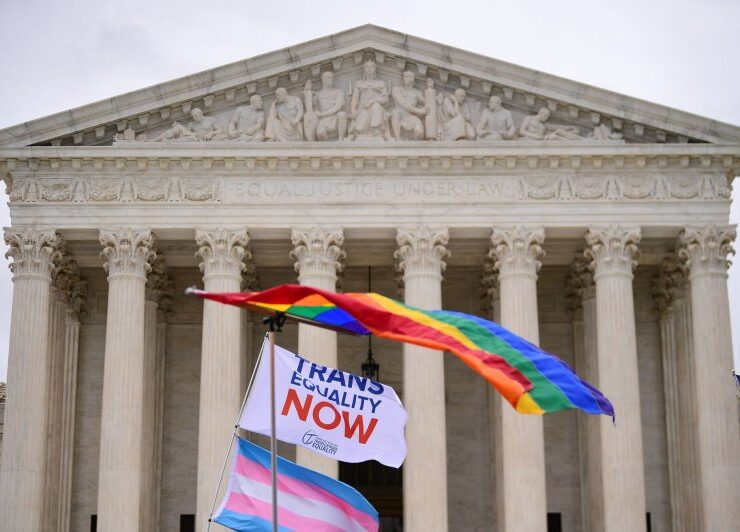Beyond Colorado: Marriage equality and civil unions across the U.S.

 Colorado now joins a growing number of states offering stronger relationship recognition to same-sex couples – from strong domestic partnership laws and civil unions, to full marriage equality.
Colorado now joins a growing number of states offering stronger relationship recognition to same-sex couples – from strong domestic partnership laws and civil unions, to full marriage equality.
SAME-SEX MARRIAGE
Massachusetts
Massachusetts became the first state offering same-sex marriage licenses after a November 2003 Massachusetts Supreme Court ruling declared unconstitutional the prohibition against same-sex couples within the state law defining all marriages. To avoid the dramatic consequences of striking the marriage statute itself, the court ordered the legislature to amend the law within 180 days to allow same-sex marriage. The legislature, splintered by the issue into factions, weighed proposals to override the Supreme Court with a Constitutional ban on same-sex marriage, or to ban same-sex marriage and offer civil unions instead. But the legislature was deadlocked, unable to find majority support for any option before the 180-day window expired. Republican Gov. Mitt Romney, legally bound by the court ruling, had no choice but to order county clerks to issue same-sex marriage licenses. The first same-sex marriages in the U.S. began in Massachusetts May 17, 2004.
Connecticut
Starting in 2005, a bill signed by Gov. Jodi Rell in Connecticut offered civil unions with all state-level benefits of marriage. When it took effect, a lawsuit for full marriage equality was already working its way through state courts. Connecticut’s Supreme Court sided with the equality advocates in October 2008, and civil unions were converted to marriages Nov. 12, 2008.
Iowa
Same-sex marriage began in Iowa after a unanimous Iowa Supreme Court ruling in April 2009 declaring that marriage licenses couldn’t be denied based on sexual orientation. The decision made Iowa the first state outside liberal West Coast and New England states to offer full marriage equality, beginning in Iowa April 27, 2009. Opponents launched campaigns to urge voters against retaining the judges on their ballots, unseating three during the November 2010 midterm elections. But the backlash against the ruling gradually weakened, and a fourth judge up for voter review in 2012 was retained.
Vermont
In 2000, Vermont became the first state to offer civil unions – passed by the legislature and signed by Gov. Howard Dean in to comply with a Vermont Supreme Court ruling that same-sex couples must receive the same rights as married couples. Same-sex marriage advocates introduced a bill for full marriage equality in early 2009. Despite strong support in the legislature, there was a daunting obstacle: Republican Gov. Jim Douglas pledged to veto the bill. Legislators could override a veto with two-thirds majorities in each chamber, but that hadn’t happened in Vermont in almost 20 years. The bill received an impressive 26 to 4 vote in the Senate, but the 95 to 52 vote in the House – though remarkable – was still five votes short of the two-thirds supermajority needed to override a veto. Douglas vetoed the bill April 1, leaving advocates scrambling for additional House votes. The suspenseful veto-override vote came April 7, passing the bill 100 to 49 – exactly the number of supporters needed. Same-sex marriage began in Vermont Sept. 1, 2009.
New Hampshire
New Hampshire’s Democratic Gov. John Lynch was opposed to same-sex marriage, but in 2007 he agreed to sign a bill for civil unions that took effect in Jan. 2008. In 2009, Lynch was under heavy pressure from his party to sign a bill headed for passage in the legislature for full marriage equality. Lynch agreed to sign the bill after a compromise to include protections for churches refusing to perform same-sex marriages. Same-sex marriages began in New Hampshire Jan. 1, 2010. One year later, civil unions that had been formed prior to January 2010 were automatically converted to marriages.
Washington D.C.
Washington D.C. began offering limited domestic partnerships in 1992, and in 2009 the Council of the District of Columbia passed a bill for same-sex marriage in the district. Mayor Adrian Fenty signed it Dec. 18 that year, beginning a 30-day window for the U.S. Congress to review the legislation. Congress did not intervene and same-sex marriages began in Washington D.C. March 3, 2010.
New York
With one of the most visible LGBT communities in the nation, activists in New York had long pushed for marriage equality there. Beginning in 2004, various local ministers and government officials began acts of civil disobedience by solemnizing same-sex marriages despite risking prosecution for breaking the law. Local governments were inconsistent in policies toward recognizing out-of-state same-sex unions, while year after year, legislative fighting resulted in the failure to pass – and sometimes the failure to even introduce – promised bills for marriage equality. Statewide recognition of out-of-state same-sex marriages began in May 2008. As lawsuits worked their way through state courts, the New York State Assembly passed bills for marriage equality three times by 2011 – each bill blocked in the Senate. Finally in June 2011, a fourth bill passed the Senate and was signed by Gov. Andrew Cuomo. Same-sex marriages began in New York on July 24, 2011.
Washington
By 2012 there had been four notable court cases over same-sex marriage in Washington State, the first dating as far back as 1971 – but all had failed. In 2012 the legislature passed, and Gov. Christine Gregoire signed, a bill for marriage equality. Opponents petitioned to put the law on the ballot – and just four years after voters in nearby California abolished same-sex marriage with Proposition 8, there was no guarantee that Washington voters would be different. But on the November 2012 ballot, almost 54 percent of voters approved same-sex marriage – the highest-ever percent supporting same-sex marriage on any statewide ballot. Marriages began Dec. 9, 2012.
Maine
In 2009, Gov. John Baldacci signed a bill to allow same-sex marriage in Maine – but advocates’ celebrations turned out to be short-lived when opposing groups launched a voter referendum to block the bill from taking effect. The November 2009 referendum defeated same-sex marriage with 53 percent of the vote. Stung but determined, equality advocates launched their own ballot initiative for November 2012, this time reversing the tally with the 53 percent of voters backing same-sex marriage. Maine became the first state to enact marriage equality entirely by voter initiative when same-sex marriages began on Dec. 29, 2012.
Maryland
After a bill for same-sex marriage died dramatically in Maryland’s legislature in 2011, Gov. Martin O’Malley led a renewed, successful push to pass same-sex marriage through the legislature in 2012. O’Malley signed the Civil Marriage Protection Act March 1, but as was expected, same-sex marriage opponents won a petition put up the legislation for voter review on the state’s November 2012 ballot. After a fierce campaign, 52 percent of Maryland voters approved of same-sex marriages, which began Jan. 1, 2013.
CIVIL UNIONS/DOMESTIC PARTNERSHIPS
California
California is, notably, the only state to have offered full marriage equality then drop to a lower level of recognition – domestic partnerships – available in the state today. Domestic partnerships began in 1999, and were strengthened by subsequent legislatures. Gradual additions to the partnership benefits went on until May 2008, when California’s Supreme Court struck laws prohibiting same-sex marriage and allowed same-sex couples to marry starting June 16, 2008. Opponents launched a now-famous highly-funded initiative to ban same-sex marriage in the state’s Constitution – Proposition 8 – which passed in November 2008. Existing same-sex marriages were still recognized, but new ones were blocked, leaving only domestic partnerships as an option. Subsequent legislation strengthened domestic partnerships to offer nearly all the state-level benefits of marriage.
Delaware
A Delaware bill for civil unions was signed by Gov. Jack Markel in May 2011 and took effect Jan. 1, 2012.
Hawaii
Beginning in 1997, Hawaii has offered reciprocal beneficiary registration for adults who are unable to marry – available to same-sex and heterosexual couples alike. In 2011, Gov. Neil Abercrombie signed a bill for civil unions, taking effect Jan. 1, 2012 and offering the same state-level benefits as marriage.
Illinois
Illinois Gov. Pat Quinn signed a bill for same-sex unions Jan. 31, 2011, which took effect June 1, 2011. Civil unions in Illinois provide the same state-level benefits as marriage. A bill currently in the Illinois legislature would upgrade civil unions to full marriage equality.
Nevada
Same-sex marriage was banned in Nevada’s Constitution in 2002. In 2009, the legislature passed a bill for domestic partnerships that offer the most of the state-level benefits of marriage. The bill was vetoed by Republican Gov. Jim Gibbons, but the legislature overrode the veto and domestic partnerships began Oct. 1, 2009.
New Jersey
New Jersey began allowing limited domestic partnerships for same-sex couples in 2003. After a unanimous 2006 state Supreme Court ruling prohibited unequal treatment of same-sex couples – leaving specifics to be worked out by the legislature – the legislature passed civil unions bill signed by Gov. John Corzine Dec. 21 that year, taking effect Feb. 19, 2007.
Oregon
Oregon Gov. Ted Kulongoski signed domestic partnership bill in May 2007, offering most of the state-level benefits of marriage. The bill took effect Feb. 4, 2008.
Rhode Island
Limited domestic partnership rights were first offered in Rhode Island in 2002. In early 2011 a bill for same-sex marriage stalled in the legislature without reaching the desk of Independent Gov. Lincoln Chaffee, who supports marriage equality. The bill’s failure was followed by legislation for civil unions, which passed and officially took effect July 1, 2011. Another bill for same-sex marriage is now working through the legislature.
Wisconsin
Wisconsin’s state constitution bans not only same-sex marriage but unions that are similar to marriage, allowing the legislature to enact only limited forms of relationship recognition for same-sex couples. In 2009, Wisconsin legislators imbedded in a budget bill provisions to offer same-sex domestic partnership benefits, which passed June 13 that year. Wisconsin domestic partnerships have so far survived court challenges claiming they are too similar to marriage to stand.
What's Your Reaction?
Founded in 1976, Out Front is the largest LGBTQ news organization in the Rocky Mountains. "Like" Out Front on Facebook: facebook.com/outfrontcolorado, and follow us on Twitter: @outfrontco.










